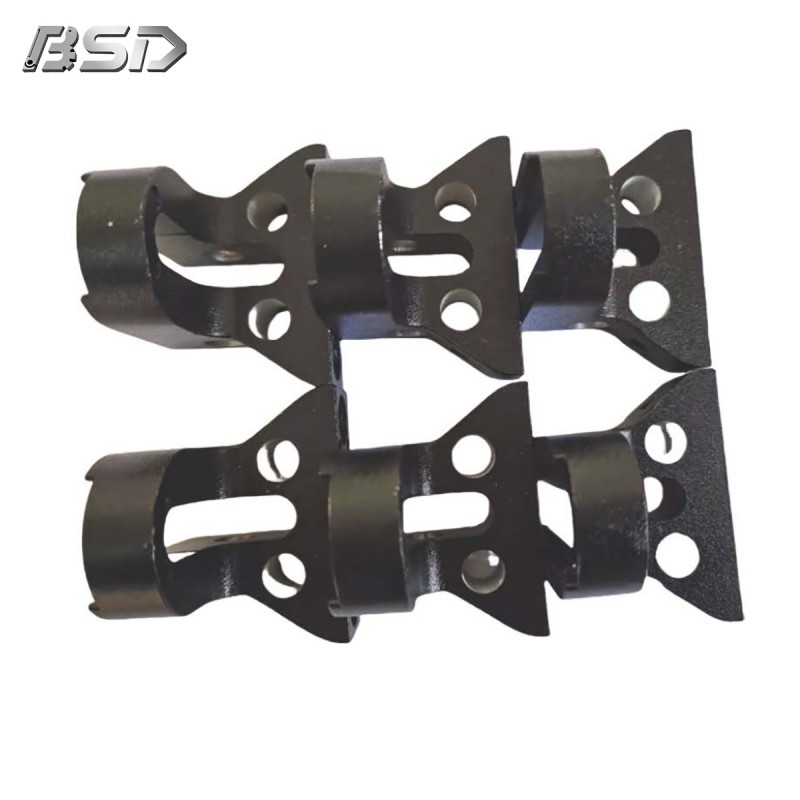What Is Sheet Metal Fabrication?
2025-09-04
Sheet metal fabrication is a vital manufacturing process used to create precise metal components and structures by cutting, bending, welding, and assembling thin metal sheets. It plays a central role in industries such as automotive, aerospace, construction, electronics, and medical equipment. From car body panels to HVAC ducts, sheet metal fabrication makes mass production efficient while maintaining high accuracy and durability.
The process begins with selecting the right material, typically stainless steel, aluminum, galvanized steel, brass, or copper. Each material offers different benefits depending on the end application—aluminum for lightweight structures, stainless steel for corrosion resistance, and galvanized steel for durability in outdoor environments.
Key Processes Involved:
-
Cutting: Achieved using laser cutters, plasma cutters, or waterjet machines to produce highly accurate components.
-
Bending: CNC press brakes create precise angles and curves for complex designs.
-
Punching: Used to create holes, slots, and intricate shapes in sheet metals.
-
Welding & Assembly: Joins multiple components seamlessly, forming final products.
-
Surface Finishing: Techniques like powder coating, anodizing, and polishing enhance durability and aesthetics.
By leveraging modern CNC (Computer Numerical Control) technology, manufacturers can achieve higher accuracy, reduce production time, and minimize material waste. This makes sheet metal fabrication cost-effective and environmentally friendly, aligning with the growing demand for sustainable manufacturing solutions.
Why Sheet Metal Fabrication Is Crucial for Product Innovation
Sheet metal fabrication is at the core of modern product development because it combines versatility, scalability, and precision. Whether producing prototypes or mass-manufactured parts, this process allows engineers to push the boundaries of innovation.
Advantages of Sheet Metal Fabrication:
-
Design Flexibility: Complex shapes, patterns, and contours can be achieved with minimal material waste.
-
Durability: Finished components withstand extreme temperatures, moisture, and environmental stresses.
-
Scalability: Whether producing one-off prototypes or thousands of identical units, manufacturers can adapt quickly to demand.
-
Cost Efficiency: CNC automation reduces labor costs while optimizing raw material usage.
-
Integration with Smart Manufacturing: Sheet metal fabrication works seamlessly with CAD/CAM systems, enabling digital design-to-production workflows.
Product Parameters and Technical Specifications
| Parameter | Details |
|---|---|
| Material Thickness | 0.3mm – 25mm |
| Processing Methods | Laser Cutting, CNC Bending, Stamping, Welding |
| Surface Finishes | Powder Coating, Anodizing, Polishing, Galvanizing |
| Tolerance Range | ±0.05mm – ±0.2mm |
| Production Volume | Prototype to High-Volume Manufacturing |
| Applications | Automotive, Aerospace, Electronics, HVAC, Medical Equipment |
These specifications make sheet metal fabrication suitable for industries where both precision and reliability are critical. For instance, in the automotive industry, lightweight aluminum panels improve fuel efficiency, while aerospace engineers rely on corrosion-resistant stainless steel for safety-critical parts.
How Technology Is Transforming Sheet Metal Fabrication
The future of sheet metal fabrication is being shaped by automation, artificial intelligence, and digital manufacturing. As industries evolve, modern technologies make production faster, smarter, and more sustainable.
Emerging Trends:
-
CNC Automation: Advanced machines execute complex designs with unmatched precision, reducing manual errors.
-
Fiber Laser Cutting: Faster and more energy-efficient than traditional CO₂ lasers, enabling ultra-clean edges.
-
Robotic Welding: Delivers consistent weld quality, especially for large-scale manufacturing.
-
3D Printing Integration: Hybrid systems allow combining additive manufacturing with sheet metal techniques for customized solutions.
-
Sustainability Focus: Recycling metal scraps and optimizing energy consumption reduce environmental impact.
These innovations allow manufacturers to meet the growing demand for customized products without compromising cost-effectiveness. For example, in electronics, thinner and more compact devices require ultra-precise sheet metal components. Similarly, medical device manufacturers use micro-fabrication techniques to create highly detailed stainless steel components for surgical instruments.
Choosing the Right Partner for Sheet Metal Fabrication
Selecting the right sheet metal fabrication partner ensures your products meet strict quality and performance standards. Look for manufacturers with advanced machinery, skilled engineers, and strong quality control systems.
Key Factors to Consider:
-
Technical Expertise: Verify experience in handling different materials and processes.
-
Equipment Capabilities: Ensure they use modern CNC machines, laser cutters, and robotic welders.
-
Quality Control: Look for ISO certifications and comprehensive inspection procedures.
-
Lead Times: Faster turnaround times reduce production delays.
-
Customization Options: Evaluate their ability to handle unique design requirements.
Frequently Asked Questions (FAQs)
Q1: What materials are most commonly used in sheet metal fabrication?
A1: Stainless steel, aluminum, galvanized steel, brass, and copper are the most commonly used materials. The choice depends on the product’s requirements—aluminum for lightweight designs, stainless steel for corrosion resistance, and galvanized steel for outdoor durability.
Q2: How accurate is CNC sheet metal fabrication?
A2: With modern CNC technology, tolerances as tight as ±0.05mm can be achieved, ensuring every component fits precisely in its intended application. This level of precision is especially important for industries like aerospace, automotive, and electronics.
At BSD, we specialize in delivering high-precision sheet metal fabrication solutions tailored to your industry needs. Our state-of-the-art equipment, skilled engineering team, and strict quality assurance processes ensure every component meets the highest standards. Whether you need prototypes or large-scale production, BSD offers seamless solutions from design to delivery.
Ready to elevate your manufacturing process? Contact us today to discuss your next project and discover how BSD can transform your ideas into reality.
